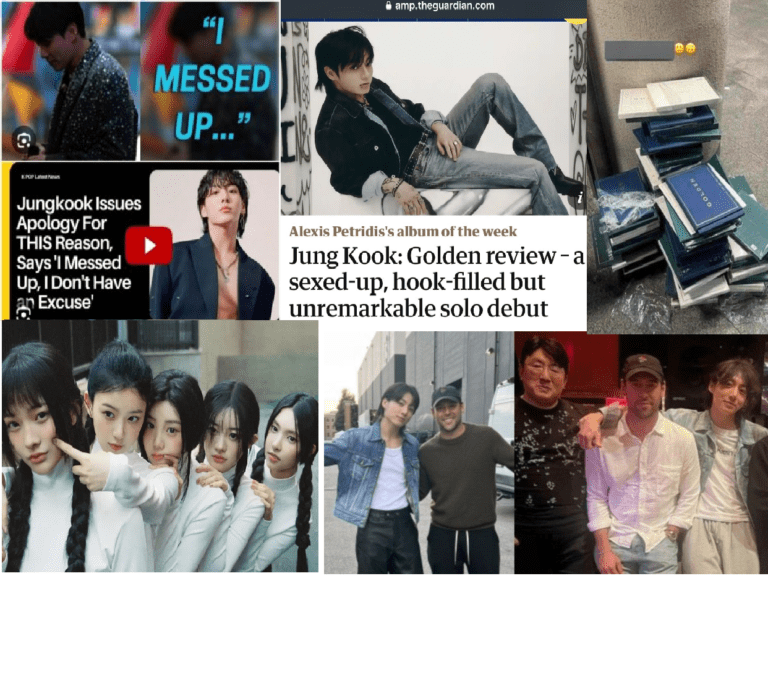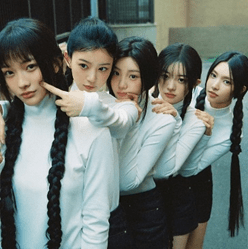Register Forum


 survival show R U Next? and
survival show R U Next? and
Their inaugural week in the music scene has been nothing short of spectacular, witnessing a consistent climb up the global charts, swiftly securing a coveted spot within the top 20.
Notably, the song “Magnetic” credits Hitman Bang, a prominent figure within HYBE, adding an element of curiosity to the group’s origins. However, despite their rapid rise, ILLIT remains relatively unknown to the general public, sparking speculation among netizens about potential irregularities (inflating of the streams) within HYBE.
It’s becoming increasingly evident that ILLIT is receiving significant support from HYBE. The surge in their songs’ popularity, coupled with a lack of interest from the general public, raises questions about the authenticity of their success. HYBE’s substantial investment in streaming services, including autoplay, 30-second ads, new artist discovery modes, and prominent playlist placements, has undoubtedly contributed to their impressive numbers. Yet, it’s crucial to note that this success appears to lack organic growth.
This situation brings to mind the case of Jungkook, who, despite being relatively unknown to the US public as a solo artist, managed to top the Billboard charts with extensive support from HYBE. US media didn’t even know who he was nor could they pronounce his name. He was named Junk kook, Jungle Cock, John Cook. Through various tactics such as multiple versions (CD’s, albums, remix albums, digital songs), covers, endless restocks via d2c CD’s, Merch & remixes featuring Western artists, China FB backroom sales deals (via Hybe), Melon passes give aways, and aggressive promotion via streaming platforms. He also resorted to voice memo versions of his songs. It reeks of desperation and zero faith in his capabilities from Hybe. Jungkook’s success seemed heavily influenced by HYBE’s efforts rather than genuine public interest. 
ILLIT and Jungkook serve as prime examples of HYBE’s willingness to artificially manufacture hype and chart success in the Western market. However, this raises questions about the sustainability and long-term benefits for the artists involved. Can such strategies truly further their careers in the global music industry?
When it comes to Jungkook no. His faux success will be short lived. His fans are incredibly delusional as to who was responsible for his rise on the charts. Hybe who also paid for award nominations. His songs were mediocre and borderline bad. His pronunciation and enunciation of English words is even worse. He looked like a total buffoon during the USA interviews. His live shows were incredibly bad that even Jungkook himself spoke out about his live performance mishaps. The Times Square performance was one of those instances where his fans were claiming he was the one that pulled the crowds when TS always has existing crowds. Even bigger than this on a casual Tuesday. OUT OF TOUCH. His fanbases are completely delusional and very unprofessional. There are thousands of tweets – spearheaded by an obese man from Brazil called Murilo (also known as Jungkook Charts on X) – BEGGING Scooter Braun to release even more versions and remixes. Whilst hating on the organic successes of his fellow members.
Personally, I remain skeptical. Artists like Taehyung (and the rest of BTS) who have garnered success through genuine fan support and organic growth, represent a more sustainable approach for HYBE’s future endeavors. Building a loyal fanbase through hard work and authenticity is likely to yield greater success in the long run, ensuring HYBE’s continued relevance and prosperity.